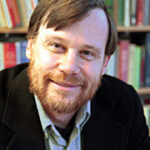Lejone John Ntema – Self-Help Housing In South Africa: Paradigms, Policy And Practice
No comments yetAlthough the role of the state in housing provision in developing countries has varied considerably since World War II, Harris (1998; 2003) asserts that the state has, in general, continued to play a significant role in the provision of low-income housing. In turn, the role of the state – as embodied in its various policies, paradigms and practices – has become the subject of debate among academics, scholars, researchers and policy makers. Despite the fact that self-help housing is as old as humankind itself (Pugh, 2001), and that it was practised in different parts of the world before World War II (Harms, 1992; Harris, 2003; Parnell & Hart, 1999; Ward, 1982), it has since received varied institutional backing (Harris, 2003) and even more prominently since the early 1970s because of the World Bank’s influence in this regard (Pugh, 1992). From literature it is evident that one can distinguish between three different forms of self-help, namely laissez-faire self-help (virtually without any state involvement),
state aided self-help (site-and-services schemes) and institutionalised self-help (cases where the state actively supports self-help through housing institutions) (more detailed definitions follow in Section 1.1.2). Various forms of self-help housing have long been one of the most prevalent housing options in the world since World War II (see for example Dingle, 1999; Harris, 1998; Ward, 1982). The theoretical notion of self-help in the context of developing countries is commonly attributed to JFC Turner (Turner, 1976). Yet, it should be admitted that aided self-help in particular was both lobbied for, and practised, long before the rise of Turner’s ideas in the 1960s and 1970s (see Harris, 1998; 1999b). Furthermore, Turner’s
work, along with its practical consequences, is closely associated with the site-and-services and neo-liberal policies promoted by the World Bank (Pugh, 1992).
PhD-thesis University of the Free State, Bloemfontein: http://etd.uovs.ac.za/NtemaLJ.pdf
You May Also Like
Comments
Leave a Reply






